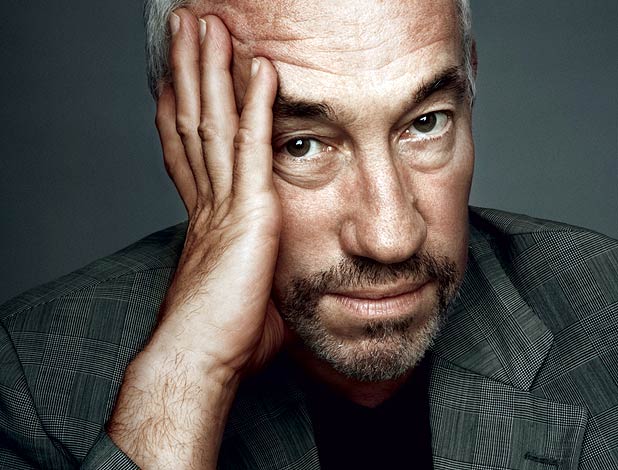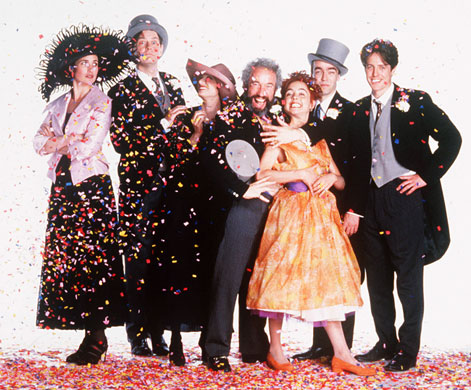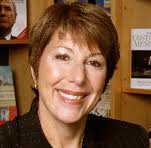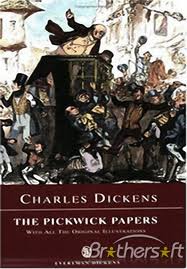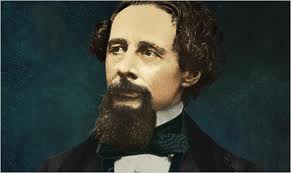It must be hard being nominated as Keynote Speaker at any major festival, especially when you’re also a famous movie star, because people’s expectations of you are enormously high. Unrealistically high.
I wondered how Simon Callow felt when he stepped on stage to give his address at the opening of the Melbourne Writers Festival last night. You could feel the weight of expectation in the air – the audience collectively holding its breath.
I have to confess I was one of the guilty ones sitting there with extraordinarily high hopes. For many reasons.
One, I was excited about seeing Simon Callow who I have long admired as an actor, ever since he captured adoration worldwide with his exuberant portrayal of the lovable Gareth in Four Weddings and a Funeral. He’s heralded as one of the world’s great theatre actors, as well as a talented and respected writer.
Two, Callow was delivering his keynote address on Charles Dickens. (he recently wrote a biography) Old-fashioned though it may be, I too am a huge Dickens fan, having spent most of third year Uni focusing on his work under the guidance of uber sharp tutor, Lousie Adler – now famed CEO and Publisher of Melbourne University Press Publishing.
Three, I was like an excited kid looking forward to the first day of school, having been chosen as one of five ‘Emerging Bloggers’ to cover events at the Melbourne Writers Festival. I couldn’t wait for it all to begin.
Yep – it’s all there, isn’t it? I was setting myself up for a fall. How on earth could one man, Simon Callow, fulfil such ‘great expectations’? (sorry, couldn’t resist that one…)
An entertaining Max Gillies gave Simon Callow a warm and heart-felt introduction, describing his book as ‘a thrilling account of Dickens.’
Then as soon as Callow took to the stage, the audience hushed. You could almost touch the awe. MWF Director Steve Grimwade helped us all fall in love with him just a little bit more with a story about how Callow had popped into the festival office the day before – unannounced – just to meet the staff.
Callow started graciously, describing Melbourne as one of the most beautiful, welcoming and cultured cities in the world, but stopped short of being saccharine by thanking us for our hospitality in providing him with a dose of English weather – the wild afternoon storm. Much laughter from the audience.
And then he took us back to where it all began – his relationship with Charles Dickens and what inspired him to write his book. Callow was just seven-years-old when he was taken to a production of A Christmas Carol which he says, ‘scared the hell out of me.’ That led him to avoid Dickens for several years until he was laid up with chicken pox and his Grandmother brought him a copy of The Pickwick Papers. ‘I fell in love with Dickens. It was a world I absolutely and instantly adored,’ he says.
From there, Callow described his life as a theatre actor, with an hilarious account of one production of A Christmas Carol where he and a fellow actor accidentally fell through a trapdoor in the middle of a show, only to climb back up and continue performing. He says if it wasn’t for the heavy Victorian costumes they were wearing, they could have been killed. A quick-witted cast member saved the moment by ad-libbing, ‘So Mr Fezziwig, down the wine cellar again, hey?’
At this point, the crowd is laughing on cue and you can appreciate how Callow naturally draws on his skills and experience as an actor to turn his speech into a performance. He’s polished, articulate and witty, yet still manages to radiate a genuine warmth that connects him with his audience.
Next, we see a more solemn Callow as he discusses Dickens life and his work. His tone becomes more serious as he talks of the different genres Dickens wrote – short stories, essays, journalistic work, novels and terrible plays. Yes, apparently there was one literary skill Dickens couldn’t master.
‘It was because he was stage struck and he tried to recreate the theatre of the time, so that his plays had no trace of Dickens in them. Even he said that a play always turned into work.’
As for Dickens incredible talent for story telling, Callow believes much of this was shaped by his childhood. Dickens’ father was thrown into a debtors’ prison and young Charles was put into lodgings in northern London where he was forced to work ten-hour days in a freezing, rat-infested building to provide for his family.
‘It was Dickens’ impoverished childhood,’ says Callow, ‘that helps explain his extraordinary compassion, his extraordinary outrage at the lot of the dispossessed, the disadvantaged. He could easily have become a vagabond, but he rose above it with an incredible optimistic energy.’
Callow becomes more impassioned describing Dickens relationship with his readers. ‘He only saw something as real when he had an audience. His readers were the great central love of his life. He needed to be in direct contact with them. He knew that the readers felt he spoke for them, that he was their champion and he gladly accepted the role.’
So many tales, so beautifully told. I realised then what I had wanted from the evening’s event. Hearing an exceptional actor talk about an extraordinary author — I wanted to be moved, to feel shivers up the spine.
Then Callow finished with a tale about how he played the role of Dickens in an episode of Dr Who. ‘The script portrayed Dickens in an imaginative and deeply felt way,’ he says. ‘At one point, Dickens turns to the Doctor and asks, “You know something about the future. Tell me, will I be read?” The Doctor says “Yes.” Dickens than asks, “And how long will I be read for?” And the Doctor answers, “Pretty much forever.” And that is how I feel too.’
Ah, the goose bumps.
Thank you, Simon Callow, for a magnificent start to the 2012 Melbourne Writers Festival.

